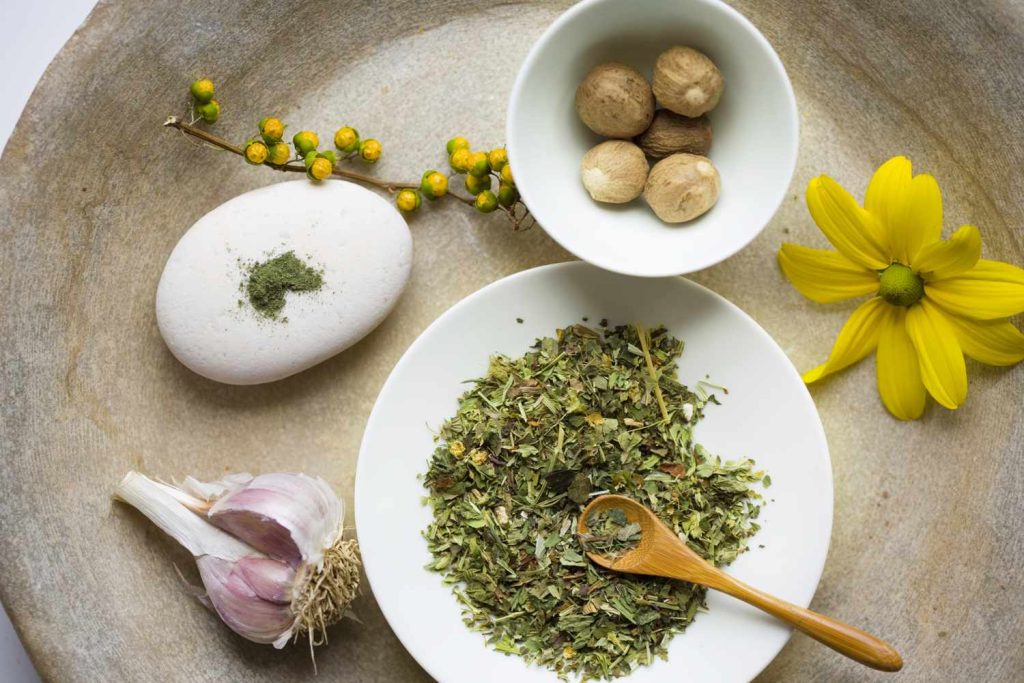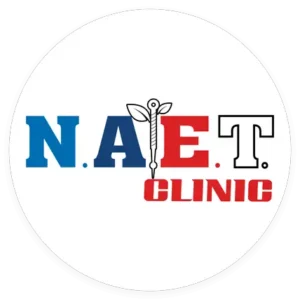Allergies can significantly impact daily life, leaving sufferers with symptoms like sneezing, congestion, itchy eyes, and more. While conventional medications can be effective, some people seek alternative approaches to avoid potential side effects or to complement their existing treatments. Thankfully, there are several natural and holistic ways to alleviate allergy symptoms. Here, we’ll explore 12 alternative allergy relief options that might provide the support you’re looking for.
1 – NAET Allergy Treatment
NAET (Nambudripad’s Allergy Elimination Techniques) is a comprehensive, holistic approach to detecting and eliminating allergies by using principles from acupuncture, kinesiology, and nutrition. Our NAET treatments are effective for managing a wide range of allergies, from environmental allergens to food sensitivities.
2 – Herbal Remedies
Many herbs have natural anti-inflammatory and antihistamine properties that can help alleviate allergy symptoms. Some popular choices include:
- Butterbur: Known for its anti-inflammatory properties, butterbur can help reduce nasal congestion and itchy eyes.
- Stinging Nettle: A natural antihistamine, stinging nettle can reduce symptoms like sneezing and runny nose.
- Quercetin: Found in foods like apples, onions, and green tea, quercetin is a flavonoid with antihistamine effects that may help reduce allergic reactions.
These herbs are often available as supplements or teas. However, it’s wise to consult a healthcare professional before starting any new herbal regimen.
3 – Acupuncture
Acupuncture, an ancient Chinese medicine practice, involves inserting thin needles into specific points on the body. Research suggests acupuncture can help regulate the immune system and reduce inflammation, providing relief for allergy symptoms. A series of treatments may be necessary to see significant results, but many allergy sufferers find it beneficial as a complementary therapy.
4 – Probiotics
Probiotics, the beneficial bacteria found in fermented foods and supplements, are essential for gut health. Since a significant portion of the immune system is located in the gut, maintaining a healthy balance of gut bacteria can support immune function and potentially reduce allergy symptoms. Yogurt, kefir, sauerkraut, and kimchi are excellent food sources of probiotics, but supplements are also available.
5 – Neti Pot or Saline Rinse
A saline rinse using a neti pot can help clear allergens from the nasal passages, reducing symptoms like congestion and runny nose. By flushing out pollen and other irritants, you can minimize the allergens that trigger reactions. It’s essential to use sterile water for nasal rinses to prevent infections.
6 – Local Honey
Some people believe that consuming local honey can help build immunity to pollen from local plants, as bees collect pollen from the same flowers that cause allergies. While scientific evidence on this is limited, many allergy sufferers report that incorporating a small amount of local honey into their diet helps reduce their symptoms over time.
7 – Essential Oils
Certain essential oils can help alleviate allergy symptoms through their anti-inflammatory and antihistamine properties. Some of the best oils for allergy relief include:
- Lavender: Known for its calming effects, lavender can reduce inflammation and help with breathing difficulties.
- Peppermint: Peppermint oil can act as a natural decongestant, providing relief from nasal congestion.
- Eucalyptus: Eucalyptus oil can help clear sinuses and improve airflow. Try adding a few drops to a diffuser or inhaling steam to open up nasal passages.
Always dilute essential oils with a carrier oil before applying them to the skin, and consult a professional aromatherapist for safe and effective use.
8 – Vitamin C
Vitamin C is a natural antihistamine that helps reduce inflammation and supports immune health. Consuming foods rich in vitamin C, such as oranges, strawberries, bell peppers, and broccoli, can help manage allergy symptoms. Supplements are also available for those who need an extra boost. Regular intake of vitamin C may help reduce the severity and duration of symptoms.
9 – Quercetin-Rich Foods
Quercetin, a powerful antioxidant found in foods like onions, apples, and green tea, can stabilize cells that release histamine, thus helping to control allergic reactions. Adding quercetin-rich foods to your diet may help alleviate allergy symptoms naturally. Supplements are also available for those looking for a higher dose, especially during allergy season.
10 – Homeopathy
Homeopathy is a holistic approach that uses minute doses of natural substances to stimulate the body’s self-healing processes. Homeopathic remedies are tailored to individual symptoms and include substances like Allium cepa (onion) for runny noses and Euphrasia (eyebright) for itchy eyes. While research on homeopathy is mixed, some people find it helpful for managing allergy symptoms. Consult a certified homeopath for a personalized treatment plan.
11 – Dietary Adjustments
Dite can play a major role to overcome the allergy reactions and manage its effects on overall health. Certain foods can either exacerbate or relieve allergy symptoms. A diet high in anti-inflammatory foods can help support the immune system and reduce symptoms. Focus on:
- Omega-3 Fatty Acids: Found in fish, flaxseed, and walnuts, omega-3s have anti-inflammatory properties that can help reduce allergy symptoms.
- Antioxidant-Rich Foods: Blueberries, spinach, and green tea are rich in antioxidants, which can help protect cells from damage and reduce inflammation.
- Elimination Diet: If you suspect certain foods are contributing to your symptoms, consider an elimination diet under the guidance of a healthcare professional to identify and remove trigger foods.
12 – Lifestyle Modifications
Simple lifestyle changes can go a long way in managing allergies. Consider the following tips:
- Air Purifiers: Using a HEPA air purifier can help reduce airborne allergens in your home, such as pollen, dust mites, and pet dander.
- Reduce Exposure to Allergens: Wash bedding frequently, vacuum regularly with a HEPA-filtered vacuum cleaner, and keep windows closed during high pollen seasons.
- Stay Hydrated: Drinking plenty of water can help thin mucus, making it easier to flush out allergens and reduce congestion.
Conclusion – Natural Allergy Relief Methods Imrove Overall Symptoms
Exploring natural allergy relief methods can offer a more holistic approach to managing symptoms. While these alternative solutions may not replace conventional treatments, they can be a valuable addition to your allergy relief toolkit. As with any health-related changes, consult a healthcare professional before beginning any new treatment, especially if you have existing health conditions or are currently on medication. With combining some of these natural remedies, you may find relief from allergy symptoms and improve your overall well-being.
At The NAET Clinic, we specialize in providing a variety of holistic allergy relief services tailored to your needs. Our offerings include NAET allergy treatment and natural allergy elimination, utilizing non-invasive and drug-free methods to help you find relief. With our energy-based allergy treatments, we address sensitivities like food allergies, offering alternative and holistic solutions to alleviate symptoms. Our experienced NAET practitioners are dedicated to offering personalized care and are conveniently located near you. Whether you’re seeking relief from chronic allergies or sensitivities, The NAET Clinic is here to support your journey towards a healthier, allergy-free life!


